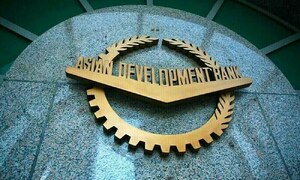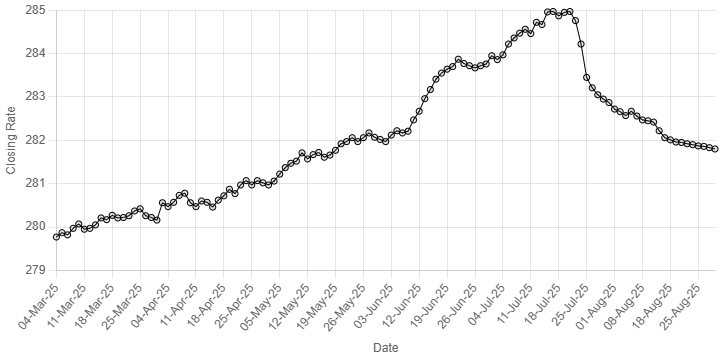 BUDAPEST: Hungary's 10-year government bond yield jumped to a 3-year high on Tuesday as US and Bund yields rose and Hungary's annual inflation rate increased to its highest level since early 2013.
BUDAPEST: Hungary's 10-year government bond yield jumped to a 3-year high on Tuesday as US and Bund yields rose and Hungary's annual inflation rate increased to its highest level since early 2013.
Debt yields rose across Europe including the European Union's eastern members after the 10-year US Treasury yield set seven-year highs above 3.25 percent.
Hungary's corresponding yield traded at 3.86 percent, up 14 basis points from Monday's fixing and the highest since 2015.
"The causes were a rise in core market yields and the higher-than-expected inflation figure," one Budapest-based fixed income trader said.
Hungary's annual inflation increased to 3.6 percent in September, a tad above expectations and a 5-and-1/2-year high.
The forint eased slightly against the euro after the figures and other data showing a smaller-than-expected trade surplus in August.
The government sold 3-month Treasury bills at a negative yield after the figures, at -0.03 percent, slightly up from -0.05 percent in a sale a week ago.
Analysts said inflation could stay above 3 percent, the mid-point of the Hungarian central bank's (NBH) 2-4 percent target range in the coming months, even though a higher 2017 base in crude prices may ease upwards pressure in the rest of the year.
The inflation rise is unlikely to trigger a change in the NBH's monetary policy as core inflation remains moderate, even though it picked up to 2.4 percent from 2.2 percent in August, analysts said.
Hungary's trade surplus could drop by 850 million euros this year to 7.2 billion euros, but could still support the forint in the rest of 2018, Takarekbank analyst Andras Horvath said in a note.
Polish and Czech government bond yields rose by 2-3 basis points, even though the Czech finance ministry said it would limit bond auctions in the rest of the year.
The zloty and the Czech crown shed 0.1 percent against the euro as a weakening of the yuan weighed on risk appetite in global markets.
Warsaw's bluechip stock index still rose 0.5 percent, rebounding from a 3-week low.
The crown's loss remained moderate even though September Czech figures released on Tuesday showed the biggest monthly fall in consumer prices since November, 2015.
The 2.3 percent annual figure, after August's 2.5 percent, is closer to the Czech central bank's 2 percent target, but is unlikely to prevent further hikes in the bank's interest rates, analysts said.
The bank's Vice-Governor Mojmir Hampl said it may increase interest rates again at its November meeting, underpinning market expectations.
Romania's 10-year government bond yield, bid at 5.13 percent, was the highest since early August. Romania is due to release inflation figures on Wednesday.





















Comments
Comments are closed.